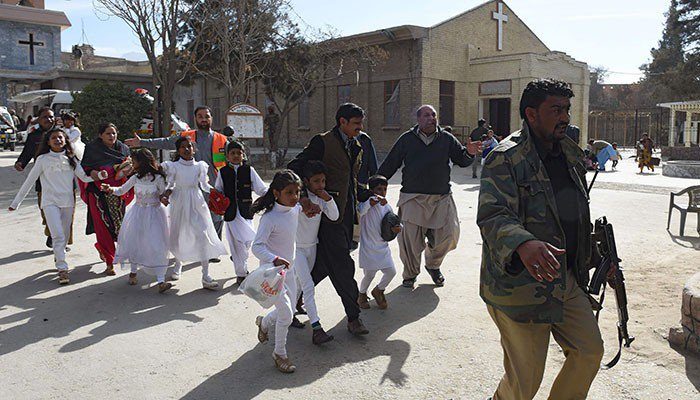CCA Condemns terrorist attack against Christian Worshipers in Quetta, Pakistan

The Christian Conference of Asia (CCA) in a statement condemned the terrorist attack against the worshipers during a Sunday worship service in Pakistan which killed at least nine people and wounded up to 56.
The attack by two suicide bombers on a packed Bethel Memorial Methodist Church in Quetta, capital of Baluchistan province in southwestern Pakistan, is the latest incident of organised attack against Christians in Pakistan.
The General Secretary of CCA Dr. Mathews George Chunakara in a statement said that the Christian Conference of Asia condemns in the strongest possible terms the cowardly acts to deter Christians from professing and practicing their faith.
The CCA General Secretary urged churches around the world to be in solidarity with the persecuted Christians in Pakistan, and offer prayers for the victims and their families.
He further added that CCA called on the authorities in Pakistan to continue their commitment in protecting the well-being and rights of religious and ethnic minorities in the country.
The Christian Conference of Asia has been engaged in international advocacy against the persecution of Christians in Pakistan.
A seven member delegation of CCA representatives from Pakistan and other Asian countries participated at the United Nation’s Universal Periodic Review (UPR) session on Pakistan held in Geneva, Switzerland from 12 to 17 November 2017.
Statement
CCA’s Statement on attack against Christian worshipers in Quetta, Pakistan
The attack by two suicide bombers on a packed Bethel Memorial Methodist Church in Quetta, capital of Baluchistan province in southwestern Pakistan on Sunday 17 December, killing at least nine people and wounding up to 56, is the latest incident of organised attack against Christians in Pakistan. Minority Christian Pakistanis continually experience persecution and attacks from hardline Islamists. Islamic extremist groups continue to attack innocent Christian minorities in Pakistan. The Christian Conference of Asia (CCA) condemns in the strongest possible terms the cowardly acts which aim to deter Christians from professing and practicing their faith.
CCA urges churches around the world to be in solidarity with the persecuted Christians in Pakistan and offer prayers for the victims and their families. We call on the authorities to continue their commitment in protecting the well-being and rights of religious and ethnic minorities in Pakistan.
May the Lord God console and provide strength to their bereaved families and loved ones who bear the suffering of the loss of lives. May the Christian community in Quetta be steadfast in their faith at this time of difficulties. We hope and pray that together, Muslims and Christians continue to be united to respond to such heinous crimes and reinvigorate our inter-religious commitment to nurture tolerance, dialogue, and alliances in order to promote harmony among people of different religions and peace with justice for all.
Mathews George Chunakara
General Secretary, CCA










